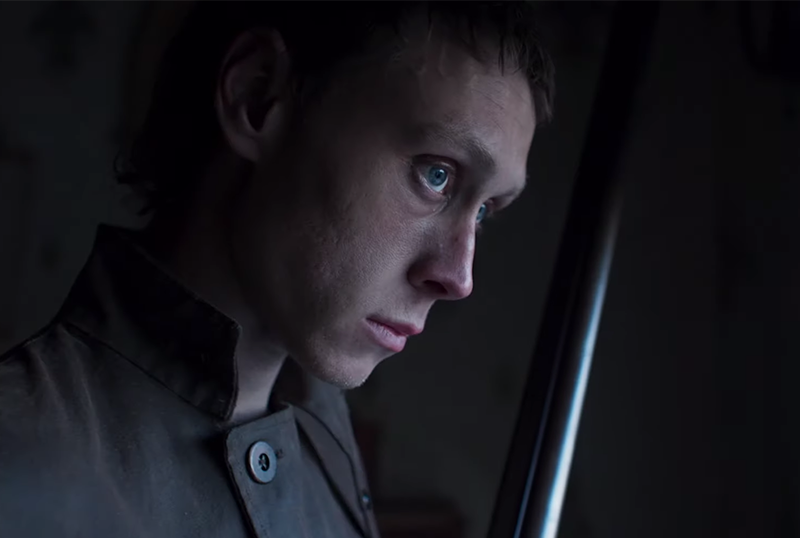“True History of the Kelly Gang,” a defiantly vicious, one-man rogue’s gallery of style and substance
Being historically accurate in film is tough. Dramatic license is all but impossible to sidestep. When your film begins with the phrase, “Nothing you are about to see is true,” you are assured a filmmaking carte blanche to wild creativity.
So begins Justin Kurzel’s film “True History of the Kelly Gang,” a wild and vicious punk-tinged, outback-set, anti-Western that brings a unique take to the infamous legend of Australian outlaw Ned Kelly.
The title is ironic.
The film is nothing short of excellent.
Shaun Grant ever so loosely based his screenplay on the ahistorical novel by Peter Carey and both proudly wave their flags of distorted legend. Can you worship an anti-hero while acknowledging the sins of his ways? Yes, Kurzel’s film would argue.
Ned Kelly was an Irishman who was raised in nineteenth century-Australia who became a bushranger (the Australian term for an outlaw who lives in the outback). Kelly’s exploits would cement his legend as both hero and villain, as legend paints him as a Robin Hood while the truth tells us he was a violent criminal with murderous tendencies.
In voiceover Kelly reads from a letter he wrote to his daughter. In it, Kelly asks her to tell the tale through his own words and not to let the writers of history sully his exploits. Kelly’s own morally twisted explanation of his life excuse the film’s rewriting of history.
As the film moves from childhood to the Kelly gang’s violent end, we see how his relationships (each one fractured or broken) affected his life choices.
The film opens with a young Ned stumbling on his mother performing fellatio on British Seargeant O’Neil (Charlie Hunnam, continuing his successful exploration of great roles). O’Neil is a predator who unfortunately sets his perverted sights on Ned Kelly’s mother (Essie Davis, so great in “The Babadook” and even more convincing here) and becomes one of many who seeks to exploit the Kelly family for his own gain.
Ned’s father, John “Red” Kelly (Ben Corbett), is unable to provide for his family and keeps himself in a drunken stupor to sidestep the pain and humiliation of pimping out his wife to Seargeant O’Neil and others. Ned’s father is representative of the helplessness in the Irish’s centuries-long fight with the British.
SEE ALIX BECQ’s review of “The Babadook”
After the death of Ned’s father, his mother sells him to a bushranger outlaw named Harry Power to make him a man. Power is everything Ned Kelly would become. He is grizzled, violent, and full of contempt for all things British. Russell Crowe does his best work in years by infusing Power with rugged charm and the ferocious anger of a charging bull. The character deserved more screen time, but Powers’ moments and Crowe’s performance are just enough and leave a potent impression on the film.
George MacKay plays Ned Kelly with an absolute fierce intensity that burns in every inch of his performance. The actor carries himself like a punk rocker in the glam era with his buzz cut and half mullet, always shirtless and always in motion. Be it his body or his eyes, Ned is the embodiment of unleashed rage and misguided revenge. His portrayal is wild abandon excellence and is a more than perfect match to the film’s stylistic choices.
Kurzel aesthetically sexualizes almost everything in his bizarre film. With deep looks and almost erotic kisses, there is certainly an Oedipal aura to Ned’s relationship with his mother. His loyal best friend (Sean Keenan) shares many close homoerotic moments with Ned and the gang entire wears tight dresses during their crimes.
The best (and most outwardly sexual) performance in the film is from Nicholas Hoult who plays British Constable Fitzpatrick, a sadistic, bi-sexual, and corrupt policeman who despises the Kelly family and their kind, envies Ned, and who may or may not have been involved in an act of bestiality.
Hoult invokes a young Malcolm McDowell and becomes full-on chilling in the role, bringing humor and darkness to a film already cloaked in violence and death.
Kurzel may have intended to reach for the surreal infused with realistic undertones, as the film refuses to ground itself in complete reality. Kurzel and his cameraman Ari Wegner and composer Jed Kurzel (the director’s brother) have made their film the equivalent of taking a hallucinogen while reading a novel on Ned Kelly and then having to explain what you just read as the drug kicks in.
Wegner’s camera and Jed Kurzel’s punk-rock-ambient score use every inch of the canvas their director lays before them to their full creative powers.
The final shootout between British police and Ned Kelly’s gang is a visual treat that turns the mini-war into a rave-like trance of ghostly illumination with a thunder of gunshots and a rainstorm of bullets.
Historian Geoffrey Serle once said the Kelly gang was “the last expression of the lawless frontier.” Justin Kurzel invokes that outlaw spirit in every moment of his filmmaking, giving unique visual life to this well-told tale.
This is not a textbook retelling of Ned Kelly’s exploits. Kurzel’s piece sidesteps full history and embraces legend to get to the core of his subject.
Part-Derek Jarman part-Alex Cox, watched over by the ghost of early Peter Weir, “True History of the Kelly Gang” is a defiantly vicious, one-man rogue’s gallery of style and substance, making it the most unique and cinematically-pleasing film of 2020 so far.
news via inbox
Nulla turp dis cursus. Integer liberos euismod pretium faucibua




